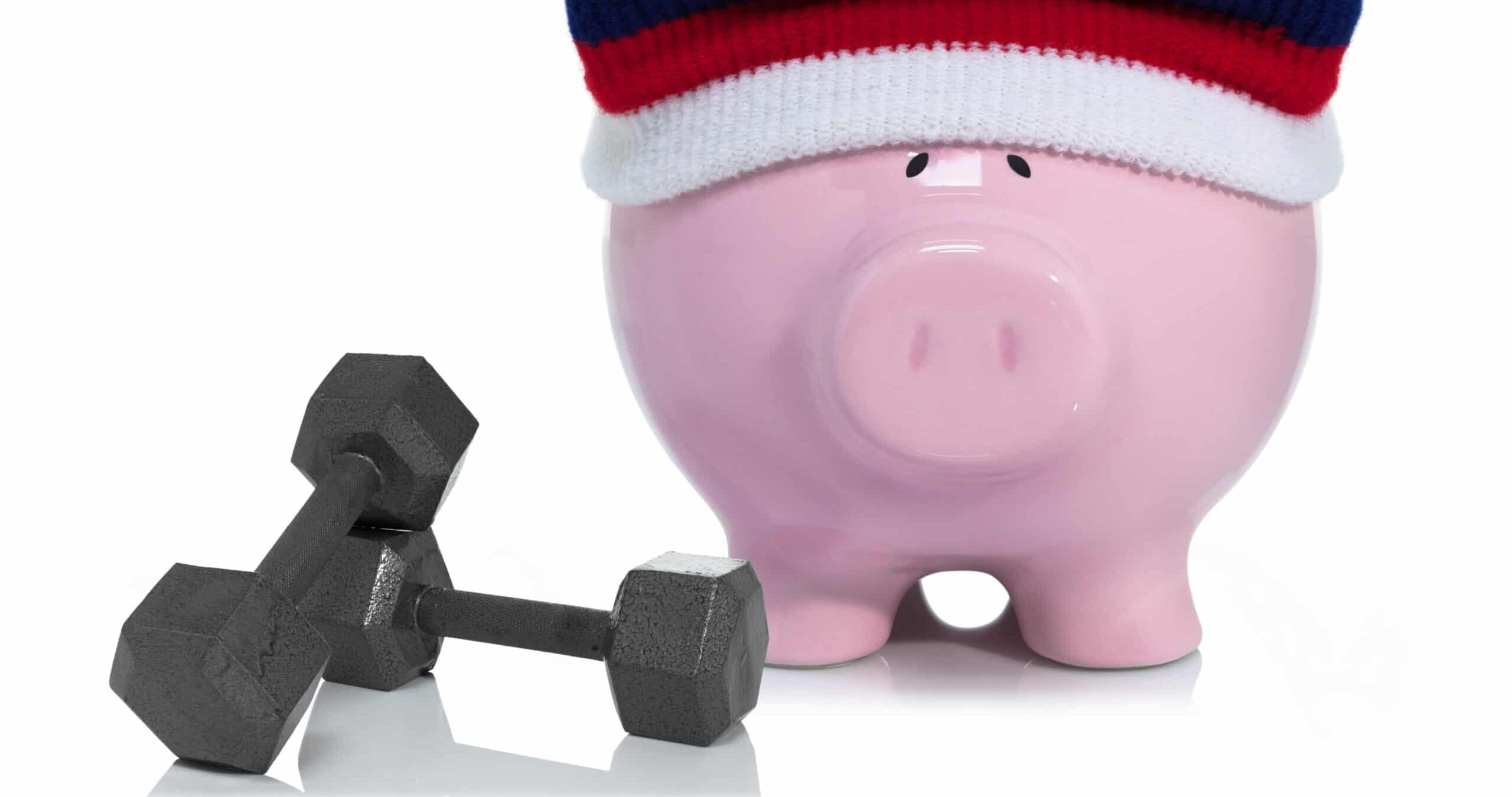There is no doubt that household budgets are coming under increased strain with soaring energy and food prices, and this is having a knock-on effect with everything else we buy on a daily basis.
Many of us are having to tighten our belts on not only the weekly supermarket shop but also on other regular outgoings and fitness activities.

New research from Alive! – the evidence-backed supplement for all life stages -found that less than one-third (28.9%) of UK adults do at least 30 minutes of physical exercise five or more days per week AND 15.8% NEVER do 30 minutes of physical exercise on a weekly basis. Further real-world data from Alive! also found that:
But it’s not all ‘doom and gloom’ – whilst it might take a little more planning, the below illustrates how WE CAN eat healthily and keep fit for less.
Here are Five Top Tips from Suzie Sawyer, clinical nutritionist, and formulator of the UK Alive! multivitamin and mineral range from feelaliveuk.com
#1 Embrace the outdoors: Sometimes overlooked as a form of exercise, walking briskly can help you build stamina, burn excess calories, and make your heart healthier.
You do not have to walk for hours. A brisk 10-minute daily walk has lots of health benefits and counts towards your recommended 150 minutes of weekly exercise. It’s also a great way to top up your vitamin D levels.
Vitamin D is an essential nutrient needed to keep the body functioning properly, from immunity[3] to strong bones and muscles to mood enhancement.
Though most of the nutrients our body needs are available via the food we eat, vitamin D is primarily obtained via sun exposure.
Unfortunately, for various reasons, including indoor lifestyles, vitamin D is one of the most common nutrient deficiencies in modern society which is why Public Health England (PHE), suggest we all take 10 mcg/day vitamin D as a supplement, as it is so difficult to obtain sufficient vitamin D through diet alone.
And this is just as important through the summer months, especially when rates of Covid-19 are still high. Try Alive! Vitamin D3 Gummies which contain 50 μg of vitamin D3 per dose as well as calcium and phosphorus or Nature’s Way Vitamin D3 High Strength 50µg Chocolate Chewable one-a-day tablets.
#2 Exercise away metabolic syndrome: We know exercise burns calories. However, the reality is slightly more complex.
Metabolic syndrome is a term which includes risk factors for heart disease, type 2 diabetes, obesity, and high blood pressure.
However, at its root is generally high blood sugar and insulin caused by being overweight. Indeed, it’s a case of ‘chicken and egg’.
Research suggests that these markers can be mitigated by aerobic exercise such as running, brisk walking and cycling.
Furthermore, walking or doing some other form of exercise 30 minutes after a meal regulates blood glucose, reducing the insulin spike and the likelihood of fat storage. Exercise, even at low intensity is great for your metabolic health.
Like walking, running is another way to get fit on the cheap. Skip the expensive home Peloton®, lace up your trainers and head outside.
You can run anywhere, including around your home and office vicinity, on local footpaths, and even on holiday.
Want to try some gentle running but not sure where to start? Why not find a ‘Couch to 5K’ programme, or look up other free online training schedules for novice runners?
Search for local running groups on social media that welcome new members of all abilities and make some new friends too!
#3 Adopt the flexitarian approach:
Switching between eating plant-based and animal-based meals is becoming increasingly popular for both health and environmental reason.
However, meat, poultry, and fish can be pricey, but protein is a must-have in your diet, and non-animal sources like lentils, chickpeas and beans are less expensive and are even cheaper bought dry and then soaked before using. Furthermore, they’re high in powerful antioxidants, also protective of the ageing process.
You could start small, such as opting for one meatless day a week and this could reap many health benefits including keeping your cholesterol levels and blood pressure in check, protection against type 2 diabetes, maintaining good digestive health and supporting your immune system.
When buying meat, choose the cheaper cuts such as pork shoulder, beef shin and lamb neck. It’s also much more economical to buy a whole chicken rather than individual packs of breasts, thighs, and drumsticks.
And remember, cooking with cheaper cuts does not mean less flavour – in fact they lend themselves to some of the most tender and tastiest meals. You simply need to understand how to handle these low-priced cuts which tend to take longer to cook.
Try this easiest Pulled Pork recipe you’ll ever make. No tricky measurements involved, minimal ingredients and a mouth-watering smoky barbecue result.
Perfect for the whole family and suitable for freezing once cooked and pulled! https://www.bbcgoodfood.com/recipes/pulled-pork
#4 Get more bang for your buck!: With food prices soaring, it’s more important than ever to get the most from each meal in terms of fuel (energy) and nutrients. As an example, whole grain foods including brown rice, pasta, and bread score on both fronts. These foods are non-refined, therefore contain many more nutrients than refined grains, especially B-vitamins. Importantly, they contain loads of fibre which is going to keep you feeling fuller for longer, so you’ll not need to keep topping up and you’ll end up eating less. Quality, not quantity is key.
Here’s a great budget-friendly, satisfying family meal everyone will love! Serve your pasta with a budget-busting tomato and paprika sauce. It’s a healthy choice as well! https://www.bbcgoodfood.com/recipes/super-smoky-bacon-tomato-spaghetti
And if you’re a fan of jacket potatoes (and let’s face-it, they’re a great ‘go-to’), then why not try baked sweet potatoes with some tinned tuna? Sweet potatoes are loaded with beta-carotene, which is turned into immune-boosting vitamin A.
Plus, they’re better than white potatoes at keeping blood sugar in balance, so you’ll feel fuller for longer. Making small changes can have big benefits to both pocket and health. And it will help to top up those essential nutrients.
#5 Plug nutrient gaps: Whilst it’s always a food-first approach, overall health is at risk if we’re not getting all the nutrients we need daily. Bearing in mind the body needs around 45 daily, this is not easy, especially on a limited budget.
Additionally, if you follow a meat-free diet, it’s good to be especially mindful of avoiding deficiencies of some essential nutrients, particularly B vitamins, vitamin D, omega-3, zinc, and iron.
Plus, ongoing stress of worrying about household budgeting can deplete nutrients, particularly vitamins C, B5 and magnesium.
Therefore, supplementing with a high-quality multivitamin and mineral is advisable. The Alive! Multivitamin and Mineral Once Daily Tablet (with products tailored to men, women, children and the over 50s), will cost just £1.86 per week, and will provide peace of mind that the body is getting what is needs for overall wellness.
All the Alive! supplements are suitable for vegetarians and packed with a unique blend of 26 fruits and vegetables to further top up the diet. It’s like having a very cost-effective insurance policy.
